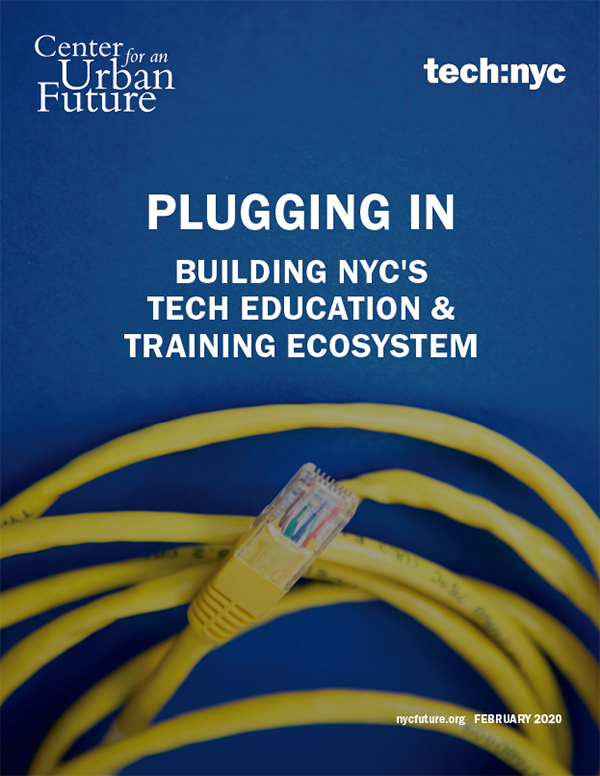Testimony of Rachel Neches
Data Researcher, Center for an Urban Future
Before the NYC Council Committees on Technology and Education
Training NYC’s Future Teachers to Integrate Computing Education
September 20, 2023
My name is Rachel Neches. I am the data researcher at the Center for an Urban Future, an independent research organization focused on building a stronger and more equitable New York City.
I’ll be testifying on behalf of the Center’s Editorial and Policy Director, Eli Dvorkin. Thank you to Chair Gutiérrez, Chair Joseph, and members of the committees for the opportunity.
I’m here today to share some of our research and recommendations around expanding computing education in New York City public schools to ensure that more New Yorkers of color, women, and low-income students gain access to technology-powered careers. The impact of emerging technologies like generative AI will only accelerate the need to ensure that every young person graduates high school equipped with the building blocks of computational thinking.
We commend Chair Joseph for introducing Resolution 0766-2023, calling on the Department of Education to expand training for all teachers in computing education through increasing access to CS4All professional development.
In addition to training current teachers, our research at the Center for an Urban Future suggests that achieving computational fluency across the K-12 system will only be possible by training thousands more of the city’s future teachers—at all grade levels and in every subject—to integrate the core concepts of computing education into their classrooms. We detailed these findings in a report published last week titled Expanding on CS4All: Training NYC’s Future Teachers to Integrate Computing Education.
Right now, fewer than 5 percent of new teachers each year are equipped to teach computational thinking. This gap is a key reason why, despite the fact that 91 percent of the city’s public schools now offer computer science classes, just 17 percent of schools are achieving CS4All’s participation & equity goals, meaning most students are still not participating in computer science classes.
Our latest report finds that the key to increasing computer science participation rates in high school is to introduce core computational concepts in the earliest grades, helping more young people build confidence in this area. And the best opportunity to achieve this is to train more teachers before they even enter a New York City classroom.
CUNY—which, incredibly, supplies about a third of all new public school teachers each year—has a promising program that is doing just this, the Computing Integrated Teacher Education (CITE) program.
To prepare all of New York City’s children to navigate the fast-changing technology landscape—and get on the path to growing careers—the City Council should work with the Adams administration to scale up the CITE program to serve all teachers in training.
This decision alone would add more than 8,000 new teachers at all grade levels who are equipped to integrate computing education into their classrooms over the next five years.
The City Council should also consider establishing a new Computing Education Fellowship to encourage more aspiring teachers—particularly from low-income communities—to pursue integrated computing education and bring the benefits back to their communities.
New York City is well-positioned to capture a meaningful share of the growth in AI-powered jobs, start-ups, and industries in the years ahead. Ensuring that far more New Yorkers have access to these jobs, however, will require a new level of investment in universal computing education.
To start, the Council should invest now in training New York City’s future teachers to become champions of computational thinking.
Thank you for the opportunity to testify today, and for bringing attention to the need for expanding computing education in New York City schools.





